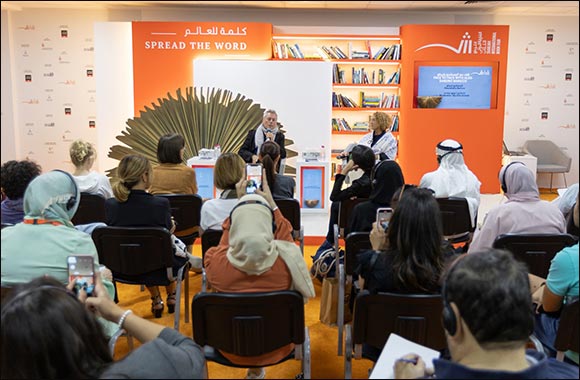Popular Italian writer, journalist and pianist Alessandro Baricco enthralled audiences at the 41st Sharjah International Book Fair (SIBF), with an interesting talk on the writing process, the success of Italian novelists, his school of writing and storytelling and the elation of Hollywood’s Angelina Jolie choosing his book, Without Blood, for her fifth directorial project.
The postmodern author who emerged in the 1990s has earned critical acclaim around the world for his works mainly targeted at younger audiences while using classical literary devices and rhythmic language. His notable novels include Castelli di rabbia (Lands of Glass), Oceano Mare (Ocean Sea), Seta (Silk) and Senza Sangue (Without Blood).
'Writing is a process when you are exploring yourselves, your childhood, your parents. It gives meaning and order to life, and at the same time an aura, it is a ritual that helps us discover ourselves,' Baricco said. 'So if a person has been writing for 20 years, you will find a person that is well balanced and harmonious.'
But writing is also a very big sacrifice, he pointed out, 'not just for you, but the people around you. If you want to create books that have a certain level of impact, then you have to put that kind of passion into it. You have to be mentally and physically devoted to it.'
In 1993, he co-founded a creative writing and storytelling school in Turin, naming it Scuola Holden after the protagonist in writer JD Salinger's Catcher in the Rye. The school hosts a variety of courses on narrative techniques including screenwriting, journalism, novels and short stories.
'We wanted to create an institute for those who didn't fit in - the Holden Caulfields of the world. We had 19 students in the first year, and 400 today. 30 years ago, it was difficult to create a school that is independent, visionary and crazy, and it still remains a challenge to this day,' the writer told the audience.
On the success of Italian writers such as Umberto Eco and Elena Ferrante, and the consequent popularity of Italian novels worldwide, Baricco said: 'When a writer manages to enter the hearts and minds of so many people within and outside the country, it means they are effective. If you are able to do that, it’s not a coincidence, it’s not just a good marketing campaign.”
He added: “The Name of the Rose by Eco, for example, jump-started modern Italian literature by 20 years. It created a journey, a direction for literature and art, dictated future styles of writing and what came after it. He influenced video games, music, and television. When I started writing, there were no writers of aesthetic value at the time; Eco changed all that.'
Hollywood star Angelina Jolie, who has written the screenplay for Without Blood, is set to direct and produce the film starring Salma Hayek. Baricco noted: 'it is like winning a lottery, you feel like you have been chosen among thousands. It makes me very excited, a film like this cannot be done without an actress of that stature.”













